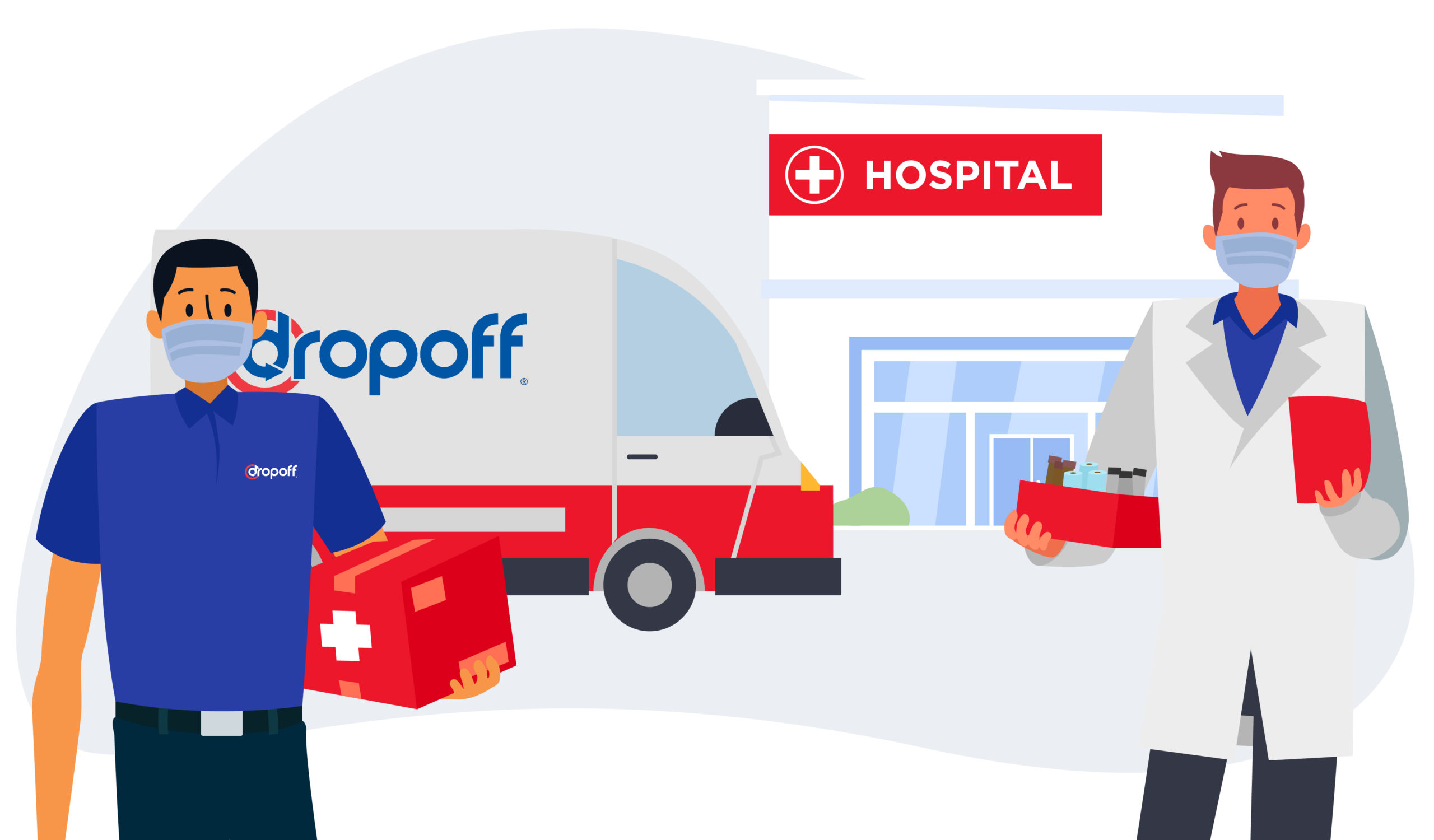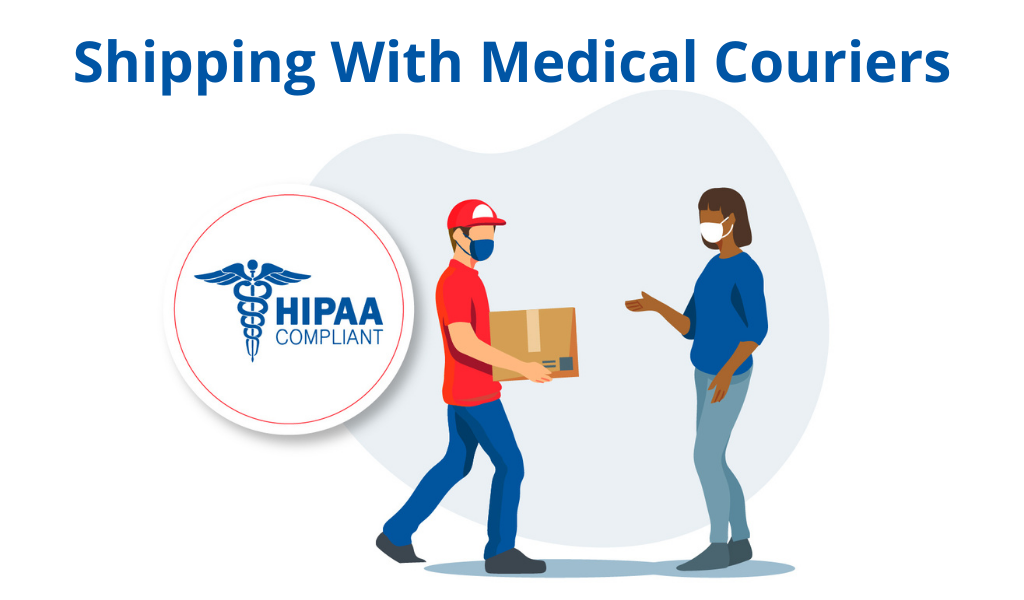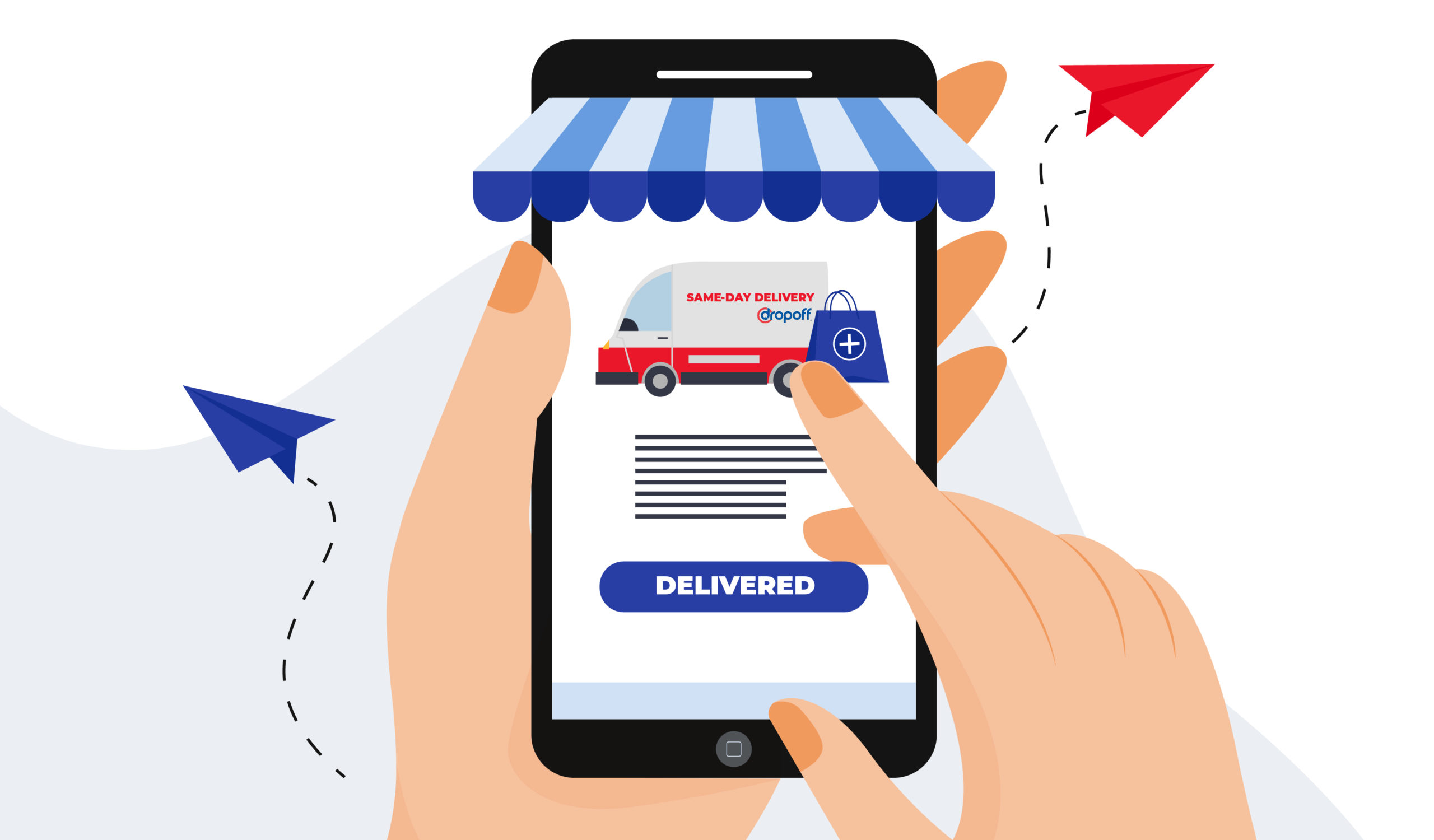Direct-to-Patient Logistics: What Is It and How Does It Work?

In the fast-evolving healthcare landscape, Direct-to-Patient (DTP) logistics has emerged as a transformative force, redefining the traditional approaches to healthcare delivery. However, despite its huge potential to streamline an efficient supply chain that could save millions of lives, numerous organizations are unknowledgeable about its process and, more so, its benefits.
This article delves into the depths of DTP logistics, exploring its significance in clinical trials, medication delivery, and patient engagement.
What Does DTP Stand for?
Clinical trials have always been a bottleneck in introducing a new drug. In an article in World Pharma Today, researchers suggest that it takes approximately $2.6 billion to test a single drug, with each patient significantly impacting the development cost and lengthening the time frame of drug study. Aside from its detrimental effects on the revenue generation of pharmaceutical companies, it also slows down the entire healthcare industry, hindering patients from receiving new medication for their ailments.
Regarding general healthcare, in the USA alone, 40% of people would rather skip their recommended medical test or treatment because of the inaccessibility of healthcare facilities. Furthermore, an estimated 100 million Americans lack good access to pharmacies and other medical supply stores.
Healthcare logistics have taken a dramatic turn with the introduction of Direct-to-Patient, or DTP. It entails bringing drugs, medical supplies, and clinical trial supplies right to patients’ front doors. This strategy guarantees accessibility and convenience while changing the pharmaceutical industry and patient care.
Direct Patient Care: A Paradigm Shift
Direct patient care has evolved significantly and is now fully integrated into the Direct-to-Patient (DTP) logistical structure. In the past, receiving healthcare frequently required patients to find their way around clinical facilities regularly, which created administrative difficulties and possibly interrupted patient care. This laborious procedure frequently results in an early treatment cessation. Regretfully, following such withdrawal, 60% of deaths in critical care happen.
However, by providing healthcare services straight to patients’ homes, DTP represents a paradigm change. This innovative method has completely changed the dynamics of patient interaction in addition to streamlining logistics. Through the demolition of obstacles connected to conventional healthcare paradigms, DTP promotes a patient-centered strategy that emphasizes ease of use, accessibility, and customized care.
Direct-to-patient logistics enhances the overall patient experience and contributes to superior healthcare outcomes. Patients no longer face the inconvenience of travel or the disruption of their daily lives for routine healthcare visits. The convenience of receiving medications, clinical trial supplies, and healthcare services at their doorstep improves adherence and empowers patients to actively participate in their care journey.
This patient-centric approach, integral to the DTP framework, contributes to better healthcare outcomes by fostering a sense of control and involvement. The personalized nature of DTP not only ensures accessibility but also plays a pivotal role in improving patient satisfaction, ultimately leading to a healthcare delivery system that is not only efficient but profoundly patient-focused.
If widely used, DTP logistics can also help pharmaceutical companies and medical organizations boost the eligible participation rate of patients in clinical trials, which is currently only at 5%. This will not just boost the pharmaceutical market but bring tremendous advancement to the entire healthcare industry.
What Is Direct Patient Care?
Direct Patient Care encompasses a variety of approaches and services aimed at providing healthcare directly to patients, often outside the traditional healthcare facility setting. Here are several forms of direct patient care:
Home Healthcare Services
Home healthcare services are a top priority as they encompass a broad range of medical care delivered directly to the patient’s residence. This includes nursing care, rehabilitation, and assistance with daily activities, catering to various healthcare needs, especially for those with chronic illnesses or recovering from surgery.
Telehealth and Telemedicine
With its virtual consultations and remote monitoring capabilities, Telehealth is crucial for providing accessible healthcare. This form of direct patient care is particularly valuable for routine check-ups, consultations, and monitoring chronic conditions, offering convenience and reducing the need for physical visits to healthcare facilities.
Direct-to-Patient Medication Delivery
Ensuring patients receive their prescribed medications directly at home is vital for medication adherence and management of chronic conditions. Direct-to-Patient Medication Delivery is especially relevant in promoting patient convenience and adherence, contributing to improved health outcomes.
Direct-to-Patient Clinical Trials
Direct-to-Patient Clinical Trials represent a transformative approach to conducting clinical research. Delivering study drugs and assessments directly to participants enhances patient participation, reduces barriers to entry, and contributes to more inclusive and diverse trial populations.
Mobile Health (mHealth) Services
Mobile health services facilitated through apps and devices provide patients with tools for self-management, remote monitoring, and access to health information. This form of direct patient care supports patient engagement and empowerment, promoting proactive health management.
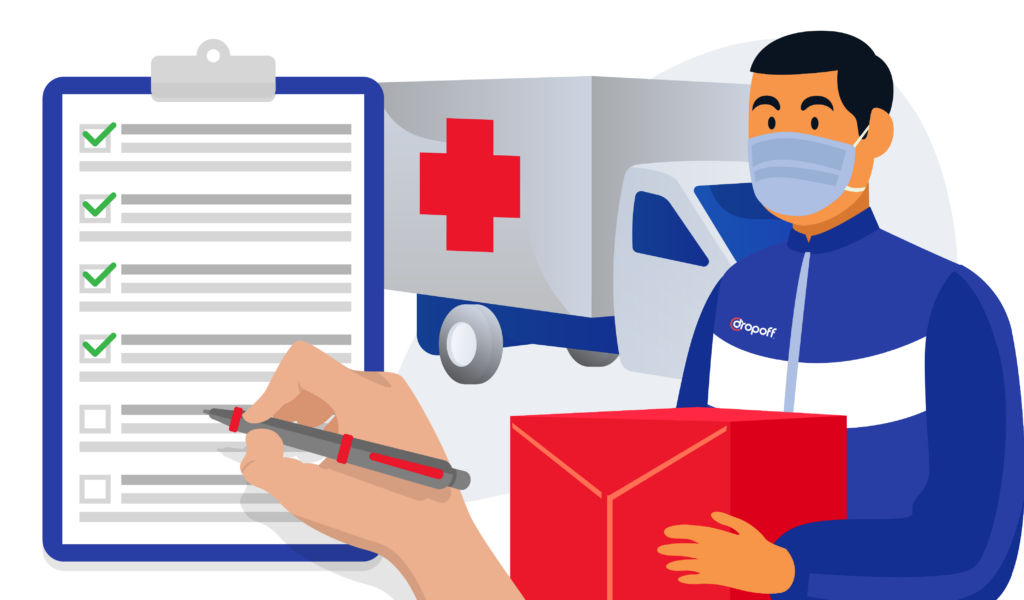
The Key Benefits of Adopting Direct Patient Logistics
The adoption of Direct-to-Patient (DTP) logistics brings forth a myriad of key benefits that significantly impact healthcare delivery and patient outcomes:
1. Enhanced Patient Adherence
Direct-to-patient logistics eliminates travel barriers, improving adherence as patients receive medications and healthcare services directly at home.
2. Improved Accessibility
DTP logistics ensures healthcare reaches patients regardless of geographical location, addressing access challenges, especially in remote or underserved areas.
3. Increased Patient Satisfaction
The convenience of healthcare at home positively influences patient satisfaction, aligning with personalized and patient-centric care preferences.
4. Efficient and Cost-Effective Clinical Trials
DTP logistics streamlines processes in clinical trials, reducing logistical burdens and potentially accelerating recruitment rates and trial completion.
5. Flexible and Patient-Centric Models
DTP logistics allows for flexible models, catering to diverse patient needs and preferences, enhancing the overall patient-centric approach.
6. Optimized Healthcare Operations
DTP logistics minimizes strain on traditional healthcare facilities, optimizing operations by freeing up resources and reducing clinic congestion.
7. Swift Response in Public Health Emergencies
DTP logistics proves invaluable during emergencies, facilitating the direct delivery of medications and healthcare services to affected individuals, ensuring continuity of care, and reducing disease spread risks.
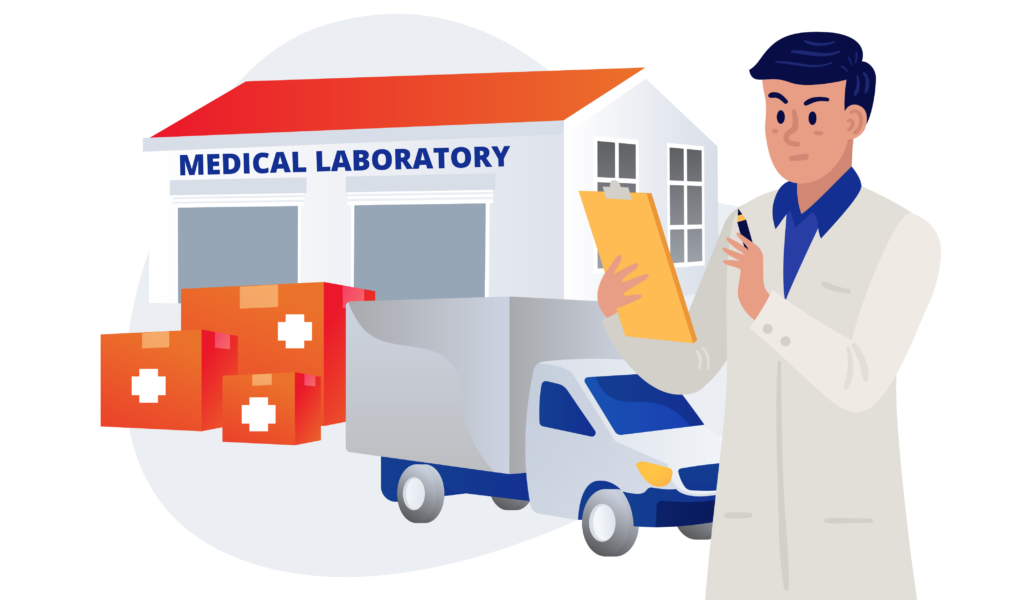
Challenges in DTP Logistics
Implementing Direct-to-Patient (DTP) logistics introduces several challenges that need careful consideration to ensure the success and effectiveness of the approach. Here are the key challenges in DTP logistics:
Temperature-Sensitive Drugs
Ensuring the proper storage and transportation of medications sensitive to temperature fluctuations poses a significant challenge, especially when delivering these drugs directly to patients’ homes.
Privacy Concerns
Maintaining patient privacy and data security in delivering healthcare services to homes requires careful adherence to privacy regulations such as HIPAA. Protecting patient information during transportation and delivery is crucial.
Tracking and Monitoring
Tracking the movement of medical goods, especially across international borders, is challenging. A robust tracking system is essential to monitor the progress and ensure timely and secure deliveries.
Regulatory Compliance
The absence of standardized regulations for DTP logistics can complicate adherence to regulatory requirements, particularly in international trials. Ensuring compliance with GCP and other regulatory standards is a critical challenge.
Logistical Coordination
Coordinating the logistics of delivering healthcare services directly to patients’ homes involves meticulous planning, scheduling, and coordination with various stakeholders. Ensuring the right services and medications reach patients on time is a complex logistical challenge.
Diverse Regional Willingness
The willingness to adopt DTP logistics varies across regions. Overcoming resistance or logistical challenges in certain areas adds complexity, especially when designing and implementing multicenter and international trials.
Patient Compliance and Monitoring
Ensuring patient compliance with prescribed treatments becomes more challenging in DTP models where direct observation is limited. Verifying proper medication administration and adherence remotely introduces complexities in monitoring patient behavior.
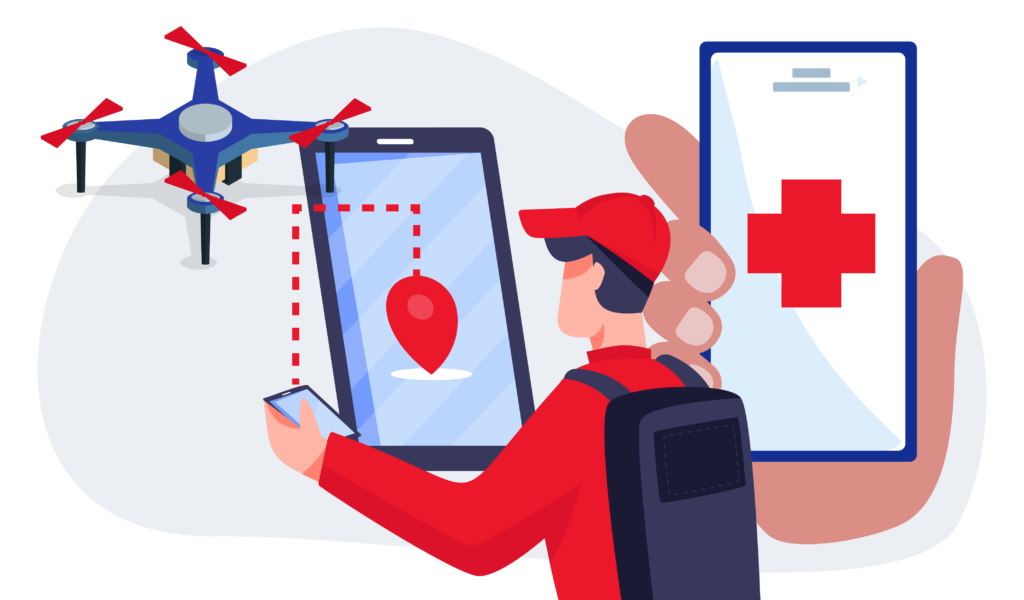
Innovations in Direct-to-Patient Services
Numerous DTP services and solutions are now emerging, contributing to increased flexibility and efficiency in healthcare delivery.
1. Advanced Telehealth Technologies
Integrating advanced telehealth technologies, including virtual consultations, remote monitoring, and wearable devices, allows for more comprehensive and real-time patient engagement. Innovations in telehealth contribute to enhanced communication between healthcare providers and patients, ensuring continuity of care in DTP models.
2. IoT and Smart Devices
The Internet of Things (IoT) and smart devices are crucial in DTP services. Connected devices, such as smart pill dispensers or devices that monitor vital signs, provide valuable data to healthcare providers, enabling proactive and personalized care directly to patients’ homes.
3. AI and Predictive Analytics
Integrating artificial intelligence (AI) and predictive analytics helps anticipate patient needs, optimize treatment plans, and improve medication adherence. AI-driven solutions can analyze patient data to provide personalized insights and recommendations.
4. Blockchain for Secure Data Management
Blockchain technology is being explored for secure and transparent patient data management in DTP services. It ensures data integrity, enhances security, and facilitates the sharing of health information while maintaining patient privacy.
5. Drones for Medication Delivery
In some regions, the use of drones for delivering medications directly to patients’ homes is being explored. Drones offer the potential for rapid and efficient delivery, especially in remote or hard-to-reach areas.
6. Digital Therapeutics
The emergence of digital therapeutics involves using software to deliver evidence-based therapeutic interventions directly to patients. These interventions can range from behavioral therapy to treatment support, providing a new dimension to DTP services.
7. Enhanced Remote Monitoring Devices
Ongoing developments in remote monitoring devices contribute to more accurate and continuous patient health tracking. Innovations in wearable sensors and remote monitoring tools enable healthcare providers to monitor various health parameters remotely, facilitating proactive interventions.
8. Personalized Medicine Solutions
Advances in genomics and personalized medicine contribute to tailoring treatments based on individual patient characteristics. DTP services can leverage these innovations to deliver highly personalized and targeted healthcare interventions.
Top Companies for DTP Logistics
The landscape of DTP logistics may have evolved, and new companies may have emerged since then. Here are some of the most notable companies in the healthcare logistics space:
Dropoff
Dropoff stands out as the premier Direct-to-Patient (DTP) logistics company for its exceptional same-day delivery services, setting industry standards for speed, safety, and reliability. From pick-up to drop-off, Dropoff ensures a seamless and efficient process, addressing the urgent demands of the healthcare sector.
Dropoff specializes in healthcare logistics, offering specialized courier services for pharmaceutical shipping, blood and specimen transportation, and cold chain logistics. This expertise is crucial for ensuring the secure delivery of sensitive medical supplies, medications, and specimens, making Dropoff the preferred choice for healthcare providers and pharmaceutical companies with stringent requirements.
Dropoff’s commitment to transparency and customer satisfaction is exemplified through its real-time tracking and image confirmation services. Customers can monitor their deliveries in real-time through a live map or receive updates via text/email, providing unparalleled visibility into the delivery process.
Additionally, Dropoff’s logistics software offers flexible solutions tailored to the unique needs of any business, ensuring adaptability to specific timelines and logistical requirements. With a steadfast dedication to same-day delivery based on individual business needs and a guarantee of on-time delivery without excuses, Dropoff emerges as the unrivaled leader in Direct-to-Patient logistics, combining specialized healthcare focus with efficiency and reliability.
Clinerion
Clinerion specializes in patient recruitment and real-world evidence services for clinical trials. They leverage data from electronic health records (EHRs) to identify suitable patients for clinical trials and facilitate the inclusion of diverse patient populations. While Clinerion’s focus extends beyond logistics, its approach aligns with the principles of DTP services.
Marken
Marken is a global supply chain solution provider specializing in the life sciences industry, including pharmaceuticals and clinical trials. They offer direct-to-patient services, ensuring the secure and timely delivery of clinical trial materials and medications to patients’ homes. Marken has been recognized for its expertise in handling temperature-sensitive shipments and providing customized logistics solutions for the healthcare sector.
Final Thought
Direct-to-patient logistics is not merely a logistical evolution but a paradigm shift in healthcare delivery. As DTP continues to gain traction, its impact on clinical trials, patient care, and pharmaceutical shipping is undeniable. With companies like Dropoff leading the way, the future of healthcare logistics looks promising, ensuring a patient-centric, efficient, and secure approach to delivering healthcare services directly to the doorstep of those who need it most.
FAQs
DTP stands for Direct-to-Patient. In healthcare logistics, especially clinical trials, DTP delivers supplies and medications directly to patients’ homes, revolutionizing the supply chain for more efficient and cost-effective clinical trials.
DTP logistics improves accessibility by delivering healthcare services directly to patients’ homes, overcoming geographical barriers. This approach ensures patients, even in remote areas, receive necessary medications, clinical trial supplies, and healthcare services.
Adopting DTP logistics offers benefits such as enhanced patient adherence, improved accessibility, increased patient satisfaction, cost-effective clinical trials, flexible patient-centric models, optimized healthcare operations, and a swift response in public health emergencies, contributing to better patient outcomes and a more efficient healthcare delivery system.



